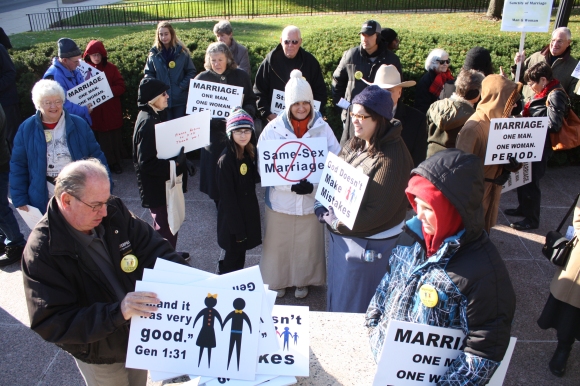Editor’s note: Check with your doctor before beginning any kind of fast.
Forty days without food sounds extraordinary to most of us. Who can live without food for that long? You might hurt yourself; you might even die.
But after 40 days without food, I’m sure the discipline of fasting is part of God’s design for those who know Him. And it’s necessary if we’re going to see revival in our churches, our state, our country, and our world.
Last fall, I sensed God moving me toward fasting. Our church was in the middle of a capital campaign – Project Elevate – to make the building accessible for the 3,000 wheelchair-bound people in our immediate vicinity. We had a clear vision: Enabling the disabled to see and hear Jesus at Uptown Baptist Church. But we only had about 20% of what we needed to add an elevator to the building, and I was very discouraged.
But I began to sense God saying, “Michael, if you want something you’ve never had before, you’ve got to do something you’ve never done before.” I felt like God wanted me to do a 40-day fast and trust Him with the results. I told my congregation so they could fast and pray along with me.
Around that same time, the nationwide crime statistics were released, and Chicago was named the “murder capital of the U.S.” after a particularly violent year. Our city became another focus of the fast, and some sister churches in our neighborhood joined in.
On January 2, 2013, I stepped out to do something I’d never done.
I engaged in a complete food fast, drinking only liquids – water, juices, coffee and tea. In the evening, I heated up a bowl of V8 and drank it like soup. After day four or five, the light-headedness went away, I stopped feeling the hunger pangs, and I was really able to focus.
What I found is that your body actually feels better when you’re fasting, at least after those initial few days. Your mind is clearer and alert, and you’re calmer. My prayer habits changed too. My normal mode of prayer is to pray silently, but during the fast, I felt the Lord prompting me to pray out loud. Throughout the fast, I had a greater expectation of God answering my prayers, and a greater closeness and communion with Him.
I saw Him work in our church too. A few days after I started the fast, Uptown received an anonymous donation that put us over the halfway mark in our capital campaign.
When the first and second quarter crime statistics were released, we rejoiced that gun crime was down 90% in our community, and had decreased all over the city. The numbers rose in the summer, as they often do, and you may have read recently about a drive-by shooting near our church steps. A few weeks after the Aug. 19 shooting, there was another incidence of violence a block away. Both were too close to home.
But our church has responded.
So far in 2013, we have received more people in membership and baptized more than we have in any of the eight years I’ve been pastor at Uptown. We’re seeing God add to the church in greater numbers than we’ve ever seen before.
Throughout the fast, I found myself personally renewed as well. I noticed I had a hyper-sensitivity to the Word of God and the work of God around me. I tended to listen more carefully to situations that came to my attention, whether it was dealing with my children, my wife, our extended family, or issues that came up in the church.
There was a sense of incredible peace and objectivity to listen, to analyze, to empathize, and to respond with wise counsel or with whatever was appropriate for the moment. There wasn’t the usual anxiety or exhaustion that sometimes comes from dealing with those things. I felt like I was responding in the Spirit and not in the flesh.
Fasting isn’t a magic formula to fix whatever’s ailing you, your church or your city. It doesn’t ensure financial favor or less violence or personal happiness. But it does create more time margin for you to pray and seek God, for who He is and what He would have you do. And He’s faithful to provide.
Michael Allen is pastor of Uptown Baptist Church in Chicago.
















